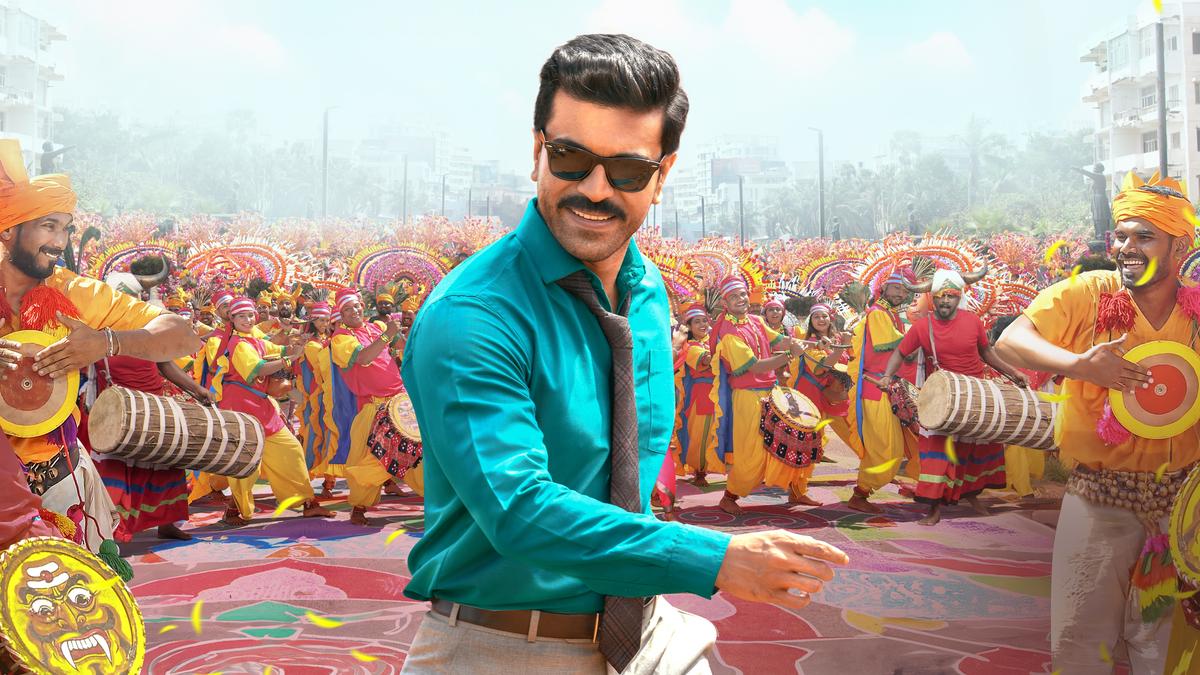
‘Game Changer’ movie review: The fun is tailormade for instant gratification
The Hindu
Shankar's Game Changer blends fast-paced storytelling with political drama, but falls short of his iconic past works.
At a pre-release promotional event, director Shankar mentioned how his new film, Game Changer, considers the audience’s diminishing attention spans, shaped by Instagram Reels, and delivers engaging sequences in quick succession. This is perhaps why two-hour 45-minute film feels like a patchwork of segments opting for hurried transitions rather than seamless segways. Is Shankar’s first Telugu film (his older Tamil films were massive hits in Telugu) fun? Yes, quite a bit. Do the face-offs between Ram Charan and SJ Suryah live up to the hype? Sure, there are clapworthy lines and segments. The bigger question is, beyond the instant gratification, will these segments, or the film, stand the test of time?
Game Changer credits its story to filmmaker Karthik Subbaraj, with overarching themes of a corruption-free society and good governance that Shankar has explored since the 1990s. For anyone acquainted with Shankar’s films, there are several Easter eggs or callbacks to cheer. When Ram Nandan (Ram Charan) mentions one-day chief minister, it is a recall to Mudhalvan (Oke Okkadu in Telugu) that made the audience take in every minute of the drama with attention, for a while giving in to the wishful thinking of what if swift clean-up measures were undertaken in governance.
In Shankar’s earlier films, the protagonists were mostly common men and women raising their voices against the system. This time, Shankar makes Ram Nandan a civil servant, giving him power to do a clean-up operation. The story also spotlights the role played by the election commission.
The film opens with the promise of intense drama. In the opening segment, an ageing politician is haunted by his past misdeeds. While the storyline treads into predictable territory, the manner in which it unfolds keeps it engaging. Family politics soon take centre stage, as Satyamurthy (Srikanth) watches the rivalry between his two power-hungry sons, Muni Manickyam (Jayaram) and Bobbili Mopidevi (SJ Suryah), come to a boiling point.
The film focuses on the politics in Andhra Pradesh, weaving a story that is set both in the past and present. The narrative focuses on areas in and around Vijayawada, Visakhapatnam, and Vizianagaram, while cleverly leaving out Hyderabad — likely to avoid references to the bifurcation of the Telugu states in 2014.
In the first hour, the film moves briskly from one sequence to another, introducing us to several characters and their game plan. Yet, there is very little to keep us invested in until pre-intermission when the drama heats up and the narrative reveals a few surprises.
A straightforward, tactful IAS officer locking horns with a politician may come across as predictable. Instead, the shape-shifting equations between Ram Nandan and Mopidevi ensures plenty of twists at every turn.





















 Run 3 Space | Play Space Running Game
Run 3 Space | Play Space Running Game Traffic Jam 3D | Online Racing Game
Traffic Jam 3D | Online Racing Game Duck Hunt | Play Old Classic Game
Duck Hunt | Play Old Classic Game











